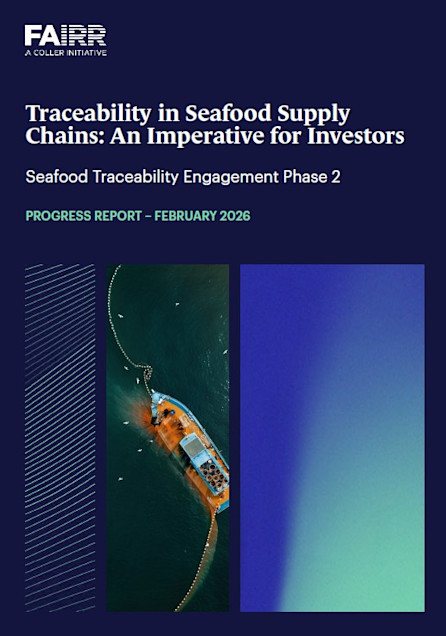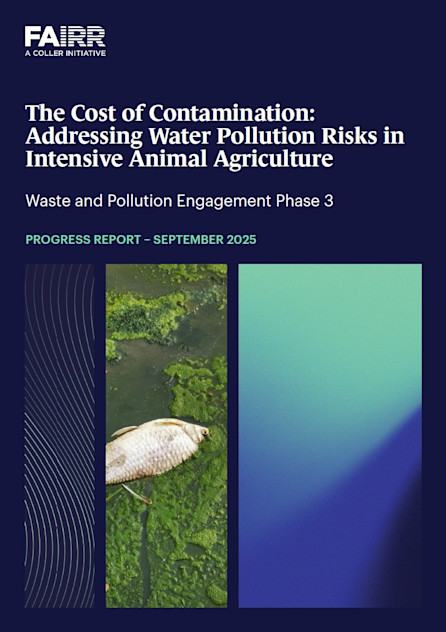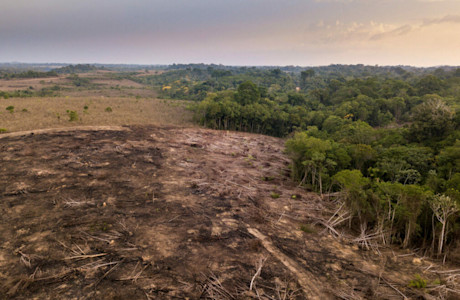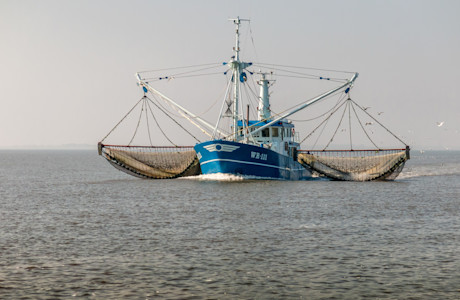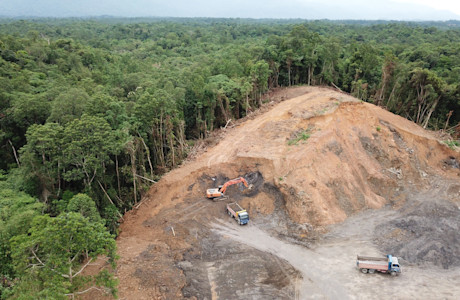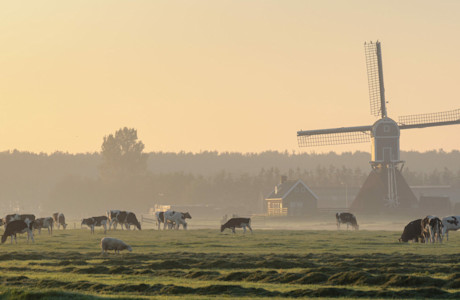
Biodiversity
Biodiversity Overview
The variability of life on Earth is encompassed in the concept of biodiversity. It represents nature’s capacity to provide the ecosystem services on which humans, other species, societies and economies rely on. Without biodiversity or biological diversity, life and economic activities as we know them simply could not exist. Biodiversity loss is, therefore a material financial risk. The need to urgently preserve and protect terrestrial, inland water, marine and coastal ecosystems was globally recognised in December 2022 with the launch of the Global Framework on Biodiversity (GFB). The framework has established a baseline for international action through to 2030 and will ultimately require a systemic shift in agricultural production.
This has also been highlighted by financial and corporate standards such as Taskforce on Nature-related Financial Disclosures (TNFD) and the Science Based Targets Network (SBTN), calling for organisations to manage and report biodiversity-related risks and set effective targets to prevent biodiversity loss.
As a result, FAIRR’s efforts seek to address the key drivers of biodiversity loss, its associated risks, and opportunities through sector analysis and company engagement. The meat and dairy sector’s impact on biodiversity loss are cause by the five principal drivers identified by the Intergovernmental Science-Policy Platform on Biodiversity and Ecosystem Services (IPBES). They are as follows:
Land/sea-use change
Direct exploitation of natural resources
Climate change
Pollution
Invasive alien species
FAIRR’s biodiversity thematic work aims to support investors understand the biodiversity footprinting tools available to them, and tackle the risks identified through collaborative engagements on waste and pollution, aquaculture feed, and seafood traceability.

Latest Activity
Report Launch: Seafood Traceability Phase 2 Progress Report
Explore the progress made by seven of the largest seafood producers in committing to and adopting traceability standards and systems during the second year of the Seafood Traceability Engagement, delivered in partnership with WWF-US, Planet Tracker, the WBA and UNEP FI.
Report Launch: Waste and Pollution Engagement Phase 3 Progress Report
The Waste and Pollution Engagement Phase 3 Progress Report highlights the key outcomes from the final phase of this engagement, focused on how 10 meat producers and two agrochemical companies can reduce their exposure to and impacts on water quality risks from animal waste and fertiliser use.
Report Launch: Taking Stock of Industrial Animal Agriculture: The Macro Trends Shaping the Global Food Supply Chain
Using 2024 Coller FAIRR Protein Producer Index data, this report looks at where company commitments and practices demonstrate progress compared to 2019.
It also showcases the research, tools and investor engagements that provide FAIRR investor members with a better understanding of the material risks associated with intensive animal agriculture and the opportunities to drive systemic change in the global food system.
Report Launch: Sustainable Aquaculture Phase 3 Progress Report
The Sustainable Aquaculture Phase 3 Progress Report highlights the key outcomes from the final phase of this engagement, focused on how seven major salmon producers can reduce their dependence on wild-caught fish in salmon feed and de-risk their operations.
Deforestation Risks in Agricultural Commodity Supply Chains: What Investors Need to Know
This briefing aims to provide investors with an overview of what deforestation is and the activities that drive it; the policies and regulations trying to address deforestation; and the best practices that investors, and their portfolio companies, can adopt to mitigate these risks in their supply chains.
Report Launch: Seafood Traceability Phase 1 Report
The Seafood Traceability Phase 1 Progress Report highlights the need for full-chain, digital and interoperable traceability in today’s complex and global supply chains. In the first year of this engagement, delivered in partnership with WWF US, Planet Tracker, the World Benchmarking Alliance and UNEP FI, we have assessed seven of the largest seafood producers on their traceability efforts.
Report Launch: Waste and Pollution Phase 2 Report
Explore the latest report, which focuses on the progress made by companies in the second phase of this engagement, as well as areas where there remain significant gaps with leading practices.
Report Launch: Corporate Biodiversity Footprints
It is well established that agriculture is the biggest driver of biodiversity loss through land use change, direct exploitation, pollution, climate change, and invasive alien species, but it can be difficult for investors to navigate the data and tools that are emerging to identify priority areas for action. FAIRR partnered with Iceberg Data Lab to explore corporate biodiversity footprinting and how it can be used with the Coller FAIRR Protein Producer Index to derive insights and prioritise stewardship initiatives with three case studies covering six global companies.
Report: Regenerative Agriculture
FAIRR’s thematic report on regenerative agriculture and the role of the investor is to assess the growing number of regenerative agriculture commitments across 79 publicly listed agri-food companies to understand whether these are meaningful enough to deliver climate and nature goals. Regenerative agriculture has gained considerable traction within the agri-food sector as a way of reducing the environmental and social harm associated with conventional production practices. Although there is no universally accepted definition, the practices associated with regenerative agriculture focus on positive environmental and social outcomes.
Engagement: Seafood Traceability
To ensure that emerging seafood traceability commitments and systems are aligned with the best practice, the FAIRR Initiative, with support from the World Wildlife Fund (WWF-US), UNEP FI’s Sustainable Blue Economy Finance Initiative, the World Benchmarking Alliance (WBA), and Planet Tracker are bringing key seafood sector investors together to collaboratively engage in constructive dialogues with a core group of seafood companies.
Engagement: Waste & Pollution
More than three billion tonnes of waste, including manure and urine, are produced by farm animals each year. This vast volume exceeds that of all other types of waste, yet it receives little attention from meat producers and investors. Manure represents a precious store of nitrogen and phosphorus fertilizer which if too often lost to the environment, creating water and air quality issues that impact biodiversity and local communities alike.
This engagement asks the largest pork and poultry producers to better assess and disclose the nutrient pollution risks, and put in place circular solutions that capture the value of the nutrients producers in livestock farming and processing facilities.
Biodiversity Webinar recording is now available
This webinar explored the key takeaways from the first dialogues of our biodiversity, Waste & Pollution Collaborative Engagement. It also offered members a preview of FAIRR's upcoming work on regenerative agriculture and biodiversity-wide scenario analysis.
Nature and Biodiversity Workstreams
Regenerative Agriculture
Assessment of commitments on regenerative agriculture by 79 food-sector companies.

Seafood Traceability Engagement
Full-chain traceability is key to addressing ESG risks and unlocking opportunities in global seafood supply chains
Follow
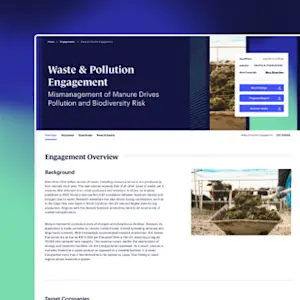
Sustainable Aquaculture Engagement
Climate and Biodiversity Risk in the Farmed Salmon Industry
Follow



